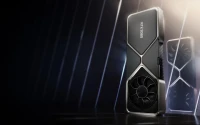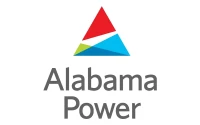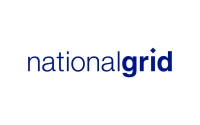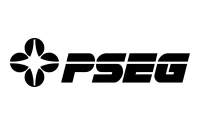It’s a strange and dissonant tune we’re hearing out of Meta right now. In one ear, we have the somber news of layoffs—101 people in the Seattle area, including two dozen working on their AI initiatives, told their journey with the company is over. It’s a headline that feels like a retreat, a pulling back from the frontiers of innovation. But in the other ear, there’s a symphony of progress playing. A major update to their Horizon OS, version 83, is rolling out on the Public Test Channel (Quest v83 PTC Has The Evolved Horizon OS UI Meta Teased At Connect), and it’s the most significant, ambitious, and frankly, beautiful leap forward for the Quest platform I have ever seen.
How do we reconcile these two realities? How can a company be shedding the very researchers and engineers who build the future while simultaneously shipping a product that feels more futuristic than ever? It feels like watching a starship jettison its science labs to gain enough speed to make a critical jump. The move is jarring, even painful to watch, but it suggests one thing with absolute clarity: Meta knows exactly where it’s going, and it's willing to make brutal sacrifices to get there first.
This isn’t just about trimming budgets. I believe we’re witnessing a fundamental strategic pivot, a hardening of resolve in the face of an existential battle for the future of computing.
The Pruning of the Idea Tree
Let’s not mince words. The news of layoffs is always gut-wrenching. One hundred and one people, with families and careers, now facing uncertainty. Among them, software engineers, product managers, and researchers in the AI division—the very minds you’d think Meta would be hoarding. When I first read that—Meta to lay off 101 employees from Seattle-area offices—I honestly felt a pang of disappointment. Are we seeing the dream of the metaverse shrink? Is the grand experiment winding down?
But the more I look at the details, the more I see a different pattern emerging. This isn't a random, panicked cost-cutting. It’s a deliberate, almost surgical, reallocation of resources. Think of Meta as a gardener who has spent years letting a magnificent tree grow wild with a thousand different branches, each one a fascinating research project or a blue-sky "what if." Now, with a formidable competitor in Apple’s visionOS bearing down, the gardener has picked up the shears. The goal is no longer to have the most branches; the goal is to grow the strongest, most delicious fruit. And that fruit is a seamless, intuitive, and powerful user experience.

This is the kind of difficult choice that defined the last great platform war—the PC wars of the 80s and 90s. Companies had to streamline, focus, and kill projects they loved to pour everything into their core operating system. They had to choose between exploring every possibility and winning the market. Meta, it seems, has made its choice. They are no longer just an R&D lab. They are a product company at war. But what does this painful pruning actually enable? What is the destination that justifies such a difficult journey?
A Glimpse of the Destination
Putting on a headset with the Horizon OS v83 beta is like stepping out of a messy workshop and into a finished showroom. The change is that dramatic. For years, the Quest UI has been functional but clunky—a floating menu bar here, a 2D window there, all feeling a bit like a mobile phone interface awkwardly projected into 3D space. The new "Navigator" UI changes everything.
It’s a full, persistent overlay that appears over anything you’re doing—in simpler terms, the system controls are always right there, floating elegantly in your space, not trapped in some hidden menu you have to summon. The library now uses beautiful, offset rows that are immediately reminiscent of visionOS, but with a distinctly Meta feel. There are dedicated tabs for your Worlds, your People, and your own avatar. The whole thing feels less like a piece of software you're operating and more like a space you're inhabiting. The speed at which they’ve gone from a clunky menu to this polished, spatially-aware interface is just staggering—it means the gap between today’s VR and the true spatial computing of tomorrow is closing faster than we can even comprehend.
And the polish goes deeper. The system can now understand more complex room geometry, like slanted ceilings and inner walls, allowing mixed reality to blend more seamlessly with your actual home. You can even log into websites like Roblox by sending a link to your phone, finally chipping away at the massive headache of typing passwords in VR.
These aren't just features on a list. They are answers to the biggest complaints users have had for years. They are a direct response to the elegance of Apple’s platform. This is Meta shifting its focus from "what can we invent?" to "what do you need?" It’s a profound maturation. The layoffs, then, aren't a contradiction to this progress; they are the cost of it. The company is betting its future not on a dozen disparate AI projects, but on making its core spatial operating system an undeniable, compelling, and beautiful place to be. Is it a painful choice? Absolutely. But is it the right one to win the next decade of computing?
A Sharper, More Focused Future
So, what are we to make of this? A company laying off AI talent while simultaneously building its most sophisticated OS yet. It’s the paradox of focus. Meta is telling us, through its actions, that the race for the next computing platform won't be won by having the most research papers. It will be won by having the best, most intuitive, and most integrated user experience. They are sacrificing breadth for depth. While the human cost of that decision is real and shouldn't be ignored, the result is a vision for the Quest platform that is clearer and more compelling than ever before. This is Meta growing up, and the future of spatial computing just got a whole lot more interesting.









